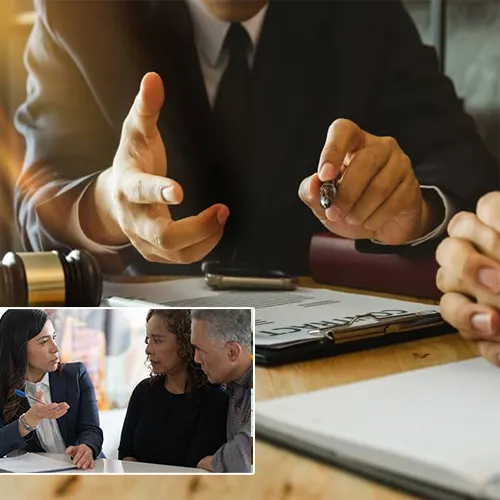Know Your Rights: Interacting With Police DUI Stop Tips
Table of Contents []
Interacting With Police DUI Stop
Understanding the Significance of Proper Conduct During a DUI Stop

If, during the course of the stop, you believe your rights have been compromised, or you face complications, we offer a direct link to skilled attorneys. These legal experts can assist with any potential legal misunderstandings or mishandlings that may have occurred. Reach out to us at (512) 960-2013 to ensure your rights are upheld and that you have the representation you deserve.
Interactions that Matter: The Initial Approach
The first moments of interaction with the police are often the most critical. Remaining calm and collected is key. It's vital to listen carefully to the officer's questions and respond politely. Our aim is to give you the knowledge to feel prepared and less anxious in these scenarios, which in turn promotes a smoother interaction for both parties involved.
Through our educational resources, we strive to demonstrate the importance of being cooperative without compromising your own legal rights. It's a delicate balance, but one that can be adeptly managed with the right information.
Your Rights During a DUI Stop
Everyone has fundamental rights, and being aware of them can protect you during a law enforcement encounter. For instance, you have the right to remain silent, and you have the right to an attorney. Knowing how to assert these rights respectfully and lawfully can prevent the situation from escalating.
Our goal is to ensure you're informed about these rights and understand how to exercise them properly. Remember, the preservation of your rights is crucial, and our resources are crafted with this in mind.
How to Deal with a Field Sobriety Test Request
Field Sobriety Tests (FSTs) are common during a DUI stop but knowing how to handle such requests can greatly impact the scenario. Our materials offer guidance on how to respond if you're asked to perform an FST, including understanding the implications of either complying with or refusing the test.
It is a complex area of the law, and the decisions you make can have lasting consequences. Educating yourself beforehand is essential, and we provide the information you need to navigate this aspect of a DUI stop.
After the Stop: When to Seek Legal Advice
If you find yourself facing charges after a DUI stop, it may be time to seek legal counsel. An attorney can analyze the details of your interaction with law enforcement to determine if any rights were infringed upon.
Contacting us at (512) 960-2013 will connect you to specialists who can evaluate your case and provide the legal assistance required. Do not hesitate to seek support if you believe there have been oversights or mistakes in how your stop was handled.
Strategic Response Strategies for a DUI Stop

One core strategy is simple: be polite. Disrespect can often lead to unnecessary complications. Another strategy is to stay informed about how much you are required to disclose. You cannot be compelled to incriminate yourself, and knowing the extent of your obligation to respond to questioning is critical.
Essential Documents to Have Ready
When pulled over, having your documentation in order can expedite the process and show preparedness. Our resources list the essential documents you should have ready to present to an officer during a DUI stop.
Being able to quickly provide your driver's license, registration, and proof of insurance demonstrates that you are a responsible driver and can lead to a quicker resolution of the stop.
The Role of Emotional Control
Maintaining emotional control during a police interaction is paramount. Fear or anger can lead to rash decisions, so we advise on ways to stay calm and collected.
Our guidance is designed to empower individuals with the tools to manage their emotions effectively in the face of pressure.
Understanding Probable Cause
Officers must have probable cause to lawfully execute a DUI stop. This means they need to have a reasonable suspicion that you are under the influence. We outline what constitutes probable cause and how it factors into the legality of the stop.
This knowledge can be crucial in assessing the validity of the stop and any subsequent charges. Remember, having a clear-cut understanding of these legal nuances can serve as your safeguard should you need to challenge the stop's legitimacy later on.
Navigating the Breathalyzer Test
Police may request that you take a breathalyzer test to gauge your Blood Alcohol Content (BAC). Familiarize yourself with the potential implications of taking or refusing this test through our materials.
We supply the pros and cons of each option so you can make an informed decision. It's a pivotal moment in a DUI stop, and knowing your options ahead of time can be immensely beneficial.
Constructive Communication: Engaging with Law Enforcement

Questions from the police can often be probing and may seem intrusive. We educate on how to answer these queries while safeguarding your own rights. Asserting your right to remain silent or request an attorney should be done in a way that is upfront yet non-aggressive.
Choosing Your Words Wisely
The words you choose during a DUI stop carry weight. Our guidance helps you select language that conveys respect and a willingness to cooperate while avoiding self-incrimination.
Phrasing your responses well can make all the difference in how the officer perceives your attitude and compliance.
Body Language Speaks Volumes
Your body language can send signals to the officer about your mindset. We advise on maintaining a posture that reflects calmness and compliance without appearing overly deferential or submissive.
Preferred body language includes keeping your hands visible and avoiding sudden movements that could be misinterpreted.
The Importance of Complying with Lawful Orders
There will be certain demands during a DUI stop that you are legally required to comply with. Understanding these and cooperating accordingly is vital.
Our resources break down which orders are lawful and provide insight into how best to comply while maintaining your legal standing.
When to Remain Silent
You have the right to remain silent, and knowing when to exercise this right is an essential aspect of interacting with police during a DUI stop.
We guide you through scenarios where remaining silent is your best course of action and how to assert this right respectfully and clearly.
Legal Support and Representation Post-DUI Stop

Having a competent legal professional analyze your case can uncover procedural errors or rights violations that you might not be aware of. Their expertise can make a substantial difference in the outcome of your charges. For reliable legal guidance after a DUI stop, do not hesitate to reach out to us at (512) 960-2013.
What to Expect from Your Attorney
An attorney will closely review the specifics of your DUI stop to ensure that your rights were respected and that the police acted within the confines of the law.
They will guide you through the legal process, addressing any queries or concerns you may have, and give you the best chance of a favorable outcome.
Challenging Unlawful Procedures
Should there be evidence of unlawful procedures during your DUI stop, your attorney will be equipped to contest them.
Our partners are well-versed in DUI law and will assert your rights through every legal avenue available.
Support Through the Court System
Navigating the complexities of the court system can be intimidating. Lawyers we connect you with specialize in providing the necessary support and representation within the courtroom.
They will handle all aspects of your case, from the pre-trial motions to the trial itself, if necessary.
Protecting Your Driving Privileges
A DUI charge can jeopardize your driving privileges. An attorney can contest the suspension of your license and seek alternatives that can minimize disruptions to your daily life.
Their goal is to protect your ability to drive, often a critical aspect of maintaining employment and personal commitments.
Contact Jackson Law Firm For Your DUI-Related Concerns
